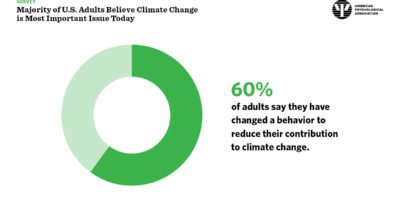Most people who meet me or know me would say that I am open and direct both as a therapist and manager. So, I am going to call it as I see it: 2020 has been lousy.
The reality of 2020 and the COVID crisis is that individuals working in the behavioral health industry are often facing the same uncertainty that the individuals who seek our services are facing.
As a therapist, manager, and someone who is open and transparent about my own trauma experiences and struggles with anxiety, I have struggled with both isolation and loneliness both personally and professionally since March 2020. What has been helpful is sharing my personal experiences (appropriately) with others.
This has deepened the therapeutic connection with clients and reminded me why I pursued being a therapist.
Over the past couple of months, I have seen the news and professional journal articles calling attention to the very real experiences of isolation, depression, anxiety, frustration, burdensome, and exhaustion that appear to beyond typical burn-out. It is not just listening to the stories of our clients that is the primary contributing factor of these experiences, but the same experiences that our clients are dealing with day in and day out – loss of or fear of loss of job/income; managing dual roles – teacher/educator and worker; and disconnectedness from the people, places and things that have previously been our healthy coping mechanism – gyms; cafes; shopping; travel; family and friends.
As the COVID crisis continues and political and social issues become more prevalent, the mental load, isolation, and loneliness seem overwhelming especially for individuals who live alone and who continue to primarily work from home.
We have lost the potlucks, coffee klatches, and daily camaraderie that had been part of our self-care. I share this struggle and experience openly and appropriately with colleagues and clients. Counselors and therapists are human, not superhuman, and for those of us dealing with isolation and loneliness, we are challenged with the art of “practicing what we preach!”. Research about how individuals who have experienced trauma manage, heal, and recover shows the importance of finding purpose and meaning. My personal experience with a traumatic loss aligns with the research.
Although my loss occurred 20 years ago, this year has unexpectedly challenged me to pull from those reserves and that resiliency.
The isolation and loneliness resulted in a certain amount of reflection and questioning. I remembered that the loss had brought me the helping profession. Finding purpose can look a variety of ways. As I stated at the start, I am direct and genuine and when I hear colleagues or clients talking about their own isolation and loneliness, I validate this by acknowledging it and confirming it is real. Clients are relieved to hear they are not alone! Sharing my experience and seeing the relief that occurs validates my purpose. It becomes circular. The loneliness and isolation are real.
There are lots of great resources available and I am merely suggesting two based upon my recent personal and professional experience.
- Share your experiences with others! It’s ok to say I’ve felt lonely today
- Reach out to someone- It benefits you and them. Take a walk, get coffee, etc.
September is Suicide Prevention Month.
Raising awareness about suicide, suicide loss, and suicide prevention is core to who I am as a human being. There are so many ways individuals can do this and it doesn’t require someone to be an expert. It’s reaching out and saying “I’m here for you. If you won’t talk, I’ll listen. I’m here if you don’t want to talk.”; “what’s something you’re looking forward to?”; “let’s meet for a walk or coffee. I’ll pick you up at 1 pm”.
It’s being present in someone’s life without judgment or trying to fix or give advice. It’s ok to ask for help.
By Toni Steinbarth, MS, LMHC
Managing Director of Community Based Services
Spectrum Human Services Inc.



